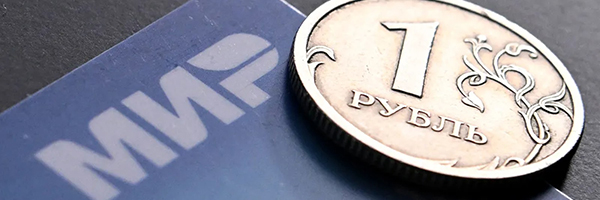 The Cradle, August 17, 2022 — The two nations are reportedly in ‘advanced talks’ to implement a payment system that can be used to circumvent western sanctions.
The Cradle, August 17, 2022 — The two nations are reportedly in ‘advanced talks’ to implement a payment system that can be used to circumvent western sanctions.
The head of the banking and insurance department of the Iranian Finance Ministry, Qorban Eskandari, said on 16 August that Iran is just months away from joining Russia’s Mir payment system.
According to Eskandari, the talks between both countries’ central banks will take place soon, as current talks with Russia over the payment system are so far restricted to bilateral ties.
Ties for banking services with other countries already using the Mir system would only take place later, Eskandari added.
Mir is a Russian word that means both “world” and “peace”. This system was launched in 2014 to be an alternative to western debit and credit card payment systems, and has been used to circumvent US sanctions on Russia in the wake of their annexation of the Crimean peninsula.
Mir cards are currently accepted in Cuba, South Korea, Turkey, Vietnam, some former Soviet bloc countries, and by the Chinese online retail service, AliExpress.
After the start of the war in Ukraine, Visa and Mastercard stopped their operations in Russia, which equaled a $1.5 billion annual revenue loss.
In the wake of this, Russia has been pushing Mir debit and credit cards with other countries as an alternative to the hegemonic system.
Over recent months, Tehran and Moscow have redoubled efforts to to cooperate economically and circumvent western sanctions, as discussions between the two nations on accepting each other’s domestic alternatives to Visa and Mastercard began in late May.
In mid-July, Russia agreed to develop several oil and gas fields in Iran with a $40 billion investment agreement, the largest in the history of Iran’s oil industry.
Russia’s state-owned multinational energy corporation Gazprom will invest the sum as part of an agreement signed with the National Iranian Oil Company (NIOC).
Iran and Russia have a reported 70 trillion cubic meters of LNG reserves, representing 30 percent of the world’s supply.
